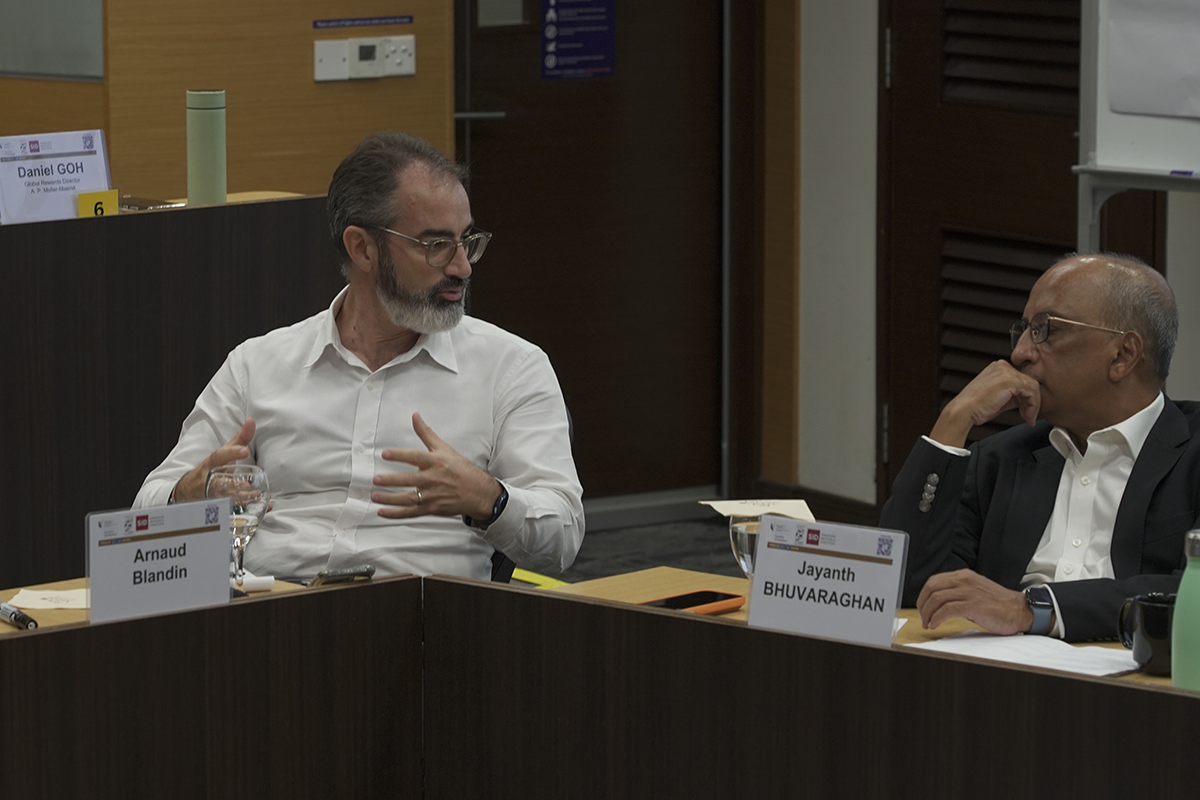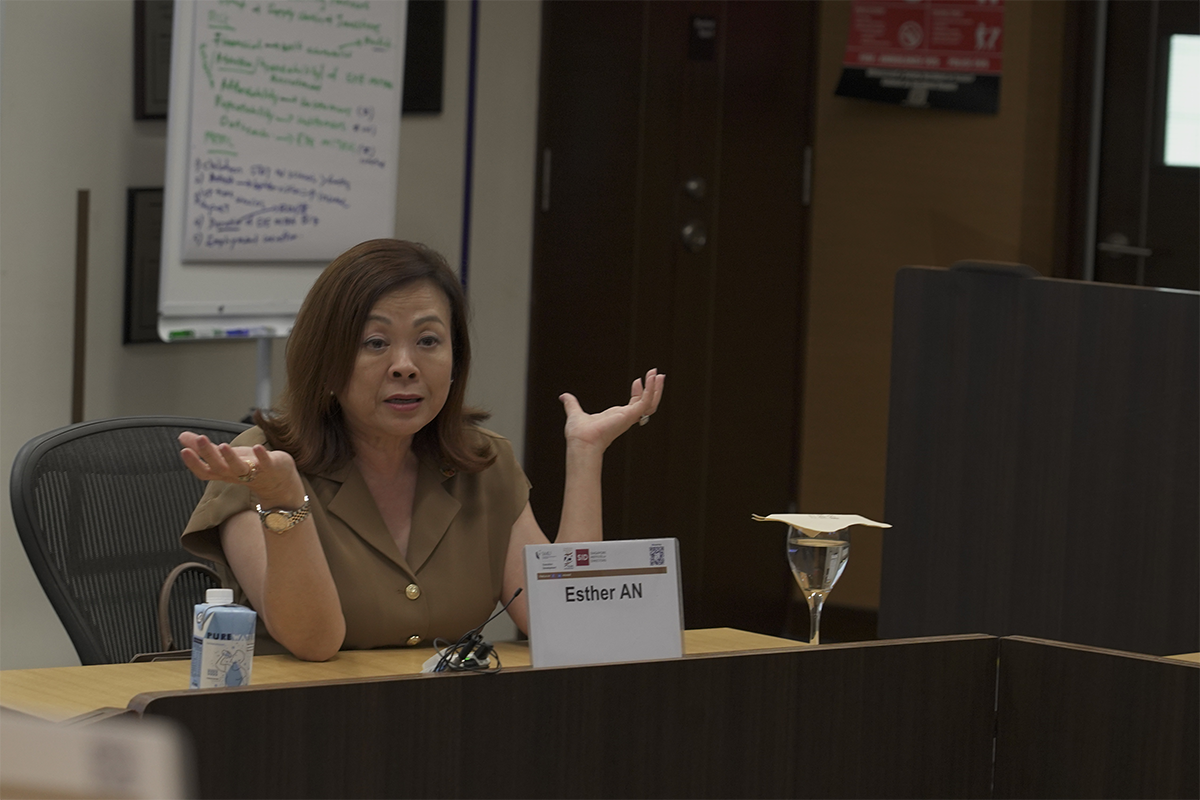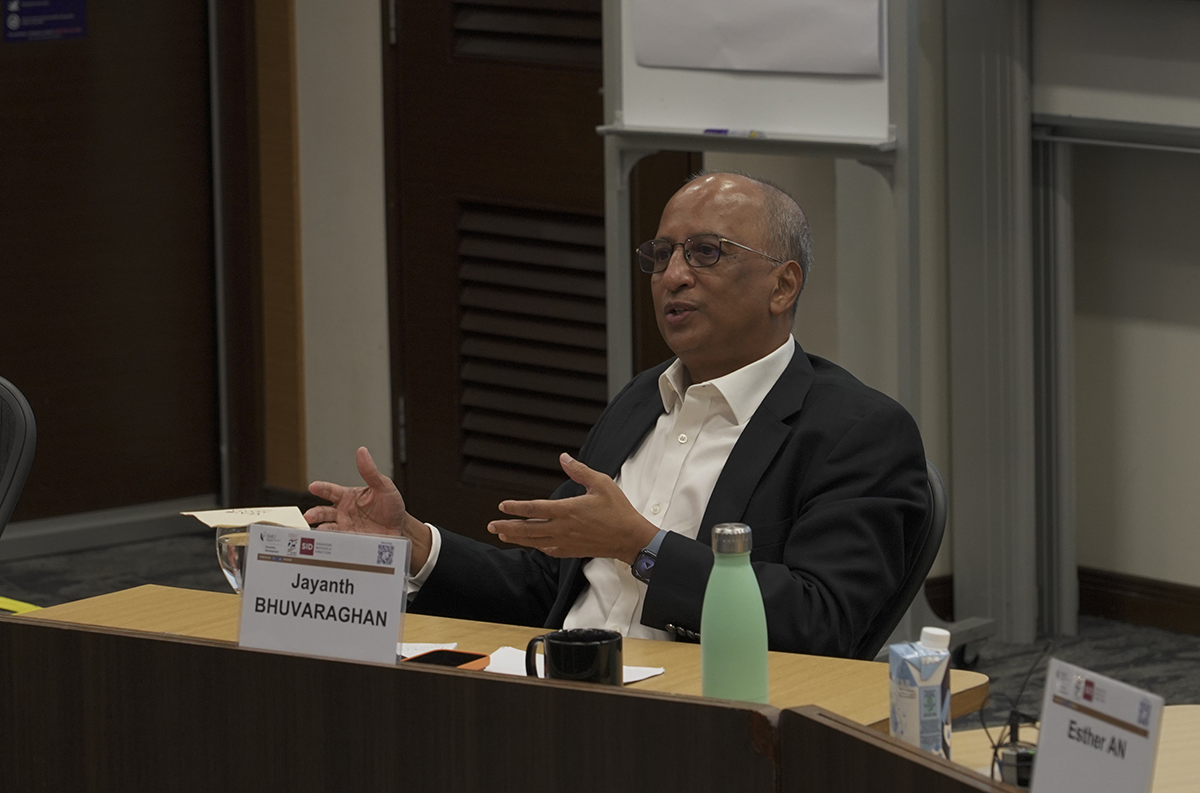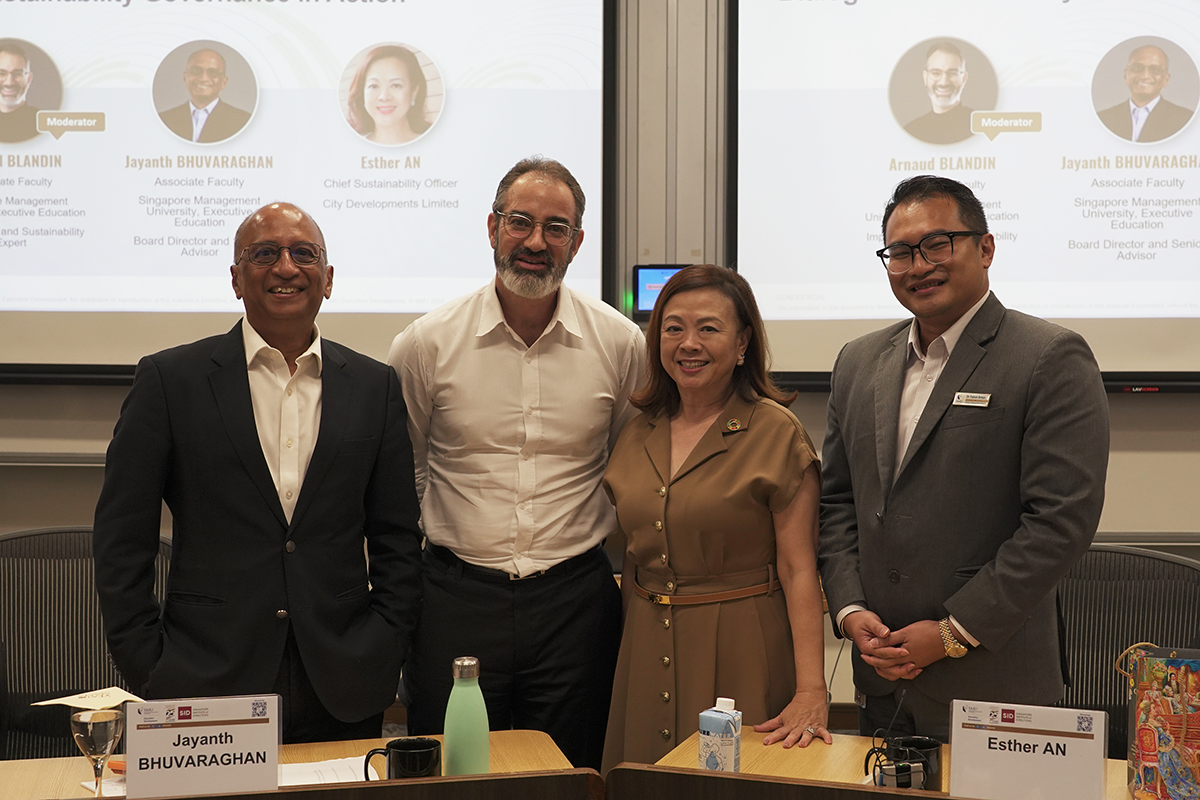
Effective sustainability governance goes beyond compliance and reporting—it requires active leadership commitment, transparency, accountability, and a strategic approach that aligns sustainability with long-term value creation.
In a recent panel discussion moderated by Singapore Management University Associate Faculty Arnaud Blandin, EYElliance Member Board of Directors Jayanth Bhuvaraghan and City Developments Limited Chief Sustainability Officer Esther An shared their wealth of experience on sustainability governance in today’s corporate landscape.
The session, which was part of the SMU-SID Directorship Programme (Module 5 on Sustainability Governance) by SMU Executive Development and Singapore Institute of Directors, considered how sustainability is evolving beyond reporting to becoming an intrinsic part of governance and value creation.
Here are the five key insights drawn from the discussion.
1. The Evolution and Integration of Sustainability Reporting
Sustainability reporting has evolved significantly from early, isolated CSR disclosures to today’s integrated financial and ESG reporting frameworks. Modern governance demands combining financial performance metrics with detailed sustainability disclosures to provide a comprehensive view of corporate value and risk.

This shift facilitates transparency, comparability, and investor confidence by linking sustainability impacts directly to financial outcomes. Regulatory developments such as the EU’s CSRD and international ISSB standards codify this integration, making it a global compliance requirement and strategic advantage. Organizations embedding ESG into core business reporting remain better positioned for long-term resilience and stakeholder trust.
2. The Growing Maturity of Board and Management Roles in Sustainability
The dynamics of boards and management has matured from peripheral oversight to active leadership and empowerment in sustainability governance. Boards must increasingly recognize the materiality of sustainability risks and opportunities, in order to foster a culture where dedicated sustainability teams collaborate widely across functions.

Trust, transparency, and clear governance frameworks within an organisation will enable teams to influence strategy, operations, and investor communications effectively. This collaborative board-management dynamic ensures sustainability is integral to decision-making, with accountability mechanisms and adequate resourcing underpinning enterprise success.
3. Navigating Challenges and Balancing Priorities
Effective sustainability governance must contend with regulatory complexity, risks of greenwashing, and the need to balance immediate financial imperatives with long-term resilience. Companies are urged to adopt innovation, robust risk management frameworks, and transparent stakeholder engagement, including supply chain oversight.

Progress requires balancing near-term financial realities with visionary sustainability targets, securing buy-in from investors and board members through demonstrated business cases. This balanced approach strengthens governance credibility and aligns sustainability with broader business strategies.
4. Asia’s Pivotal Role in Driving Global Sustainability
Asia commands significant weight in global emissions and economic activity, positioning the region as critical to the success of sustainability goals. The panel underscored the need for Asian companies and governments to step from the back seat to the front in driving transformative sustainability governance.
Despite challenges, including political influences, the opportunities in Asia for pioneering sustainable business models, clean technologies, and governance innovation are vast. Regional leadership will be vital to achieving international climate commitments while fostering resilient, equitable growth.
5. Embracing Sustainability as Corporate DNA
Sustainability is an ongoing journey. The panel emphasized the importance of taking progressive steps early. Organizations should start promptly and refine their approach along the way, continuously adapt and improve as new knowledge and technologies emerge.
This incremental approach encourages organizations to be greener today than yesterday, recognizing each small effort contributes meaningfully to broader climate targets. By embracing sustainability as a core cultural value and embedding it across all levels, companies can build lasting resilience and continuously drive better environmental and social outcomes.

What this means for leaders and board members
This dialogue aptly highlighted that sustainability governance is transitioning into an essential business discipline where continuous learning, strategic integration, and strong leadership are key.
Executives and boards are called to embed sustainability into governance models that balance rigor with flexibility, ensuring value creation for shareholders and society alike to drive impactful and responsible business transformation.
For professionals, board members or leaders seeking to deepen their understanding and capabilities in sustainability governance, SMU Executive Development offers the Sustainability Governance Programme specifically designed to navigate these complex challenges.
Speak with our Senior Manager for Short Courses, Desmond Ng at desmondngjj@smu.edu.sg or +65 6808 5393 to find out more.
Discover more of our bespoke SMU Executive Development courses and programmes.